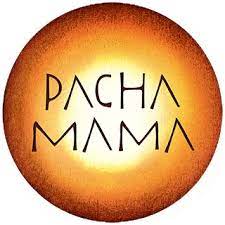
- Explore Listings
- Everything Off-Grid
- Off the Grid
- Homesteading
- Sustainability
- Survival
- Off the Grid
- Countries
- More
PACHAMAMA
ECO-VILLAGE
{{locationDetails}}
{{locationDetails}}
{{locationDetails}}
{{locationDetails}}
Browse sub-categories
PachaMama Eco Village is dedicated to the expansion of consciousness and personal transformation. The community provides a sanctuary where individuals can explore deep inner work, healing, and spiritual growth in harmony with nature.
Yes, PachaMama accepts visitors who are interested in experiencing its unique blend of spirituality, natural living, and community life. Visitors can participate in various retreats, workshops, and daily activities focused on meditation, yoga, and personal growth.
Yes, PachaMama is open to new members who resonate with its spiritual path and community values. Individuals who feel aligned with the community's mission and practices are welcome to join as long-term residents or participants in its various programs.
PachaMama is a spiritual and intentional eco-village focused on personal transformation, meditation, and sustainable living. The community emphasizes a holistic approach to life that integrates ecological stewardship with deep inner work.
PachaMama offers various housing options, including rental accommodations such as casitas, bungalows, and spaces for camping. The community is set within a lush, forested area, providing a serene environment for residents and visitors.
PachaMama operates with a leadership structure centered around the guidance of its founder, Tyohar. Decision-making within the community reflects a blend of spiritual guidance and collaborative input from members involved in various aspects of community life.
The community provides a range of common facilities, including meditation halls, yoga spaces, a communal dining area, a healing center, and natural swimming pools. These facilities support the community’s focus on wellness, spiritual practice, and communal living.
For more information or to inquire about visiting or joining the community, you can contact PachaMama through their official website:
Website: PachaMama Eco Village
Contact Form: Available on the website under the "Contact Us" section.
Phone: +506 2656 0961
Email: info@pachamama.com

EST: 1999
Many travelers seek a place where they can unwind and reconnect with nature. They want to escape the hustle and bustle of everyday life. “Pachamama Eco-Village in Costa Rica” offers just that.
This village is not just any destination; it’s a haven nestled in Guanacaste, dedicated to sustainable living and harmony with the environment.
Pachamama Eco-Village was once a 500-acre cattle farm. Through hard work, it transformed into a lush forest filled with wildlife. The village teaches how to live eco-friendly lives while offering peace and beauty.
Our article shows ways Pachamama makes this possible through reforestation, organic gardening, and renewable energy use.
Ready for an adventure? Read on to discover more about this magical place.
Sustainable Practices at pachamama eco village
Pachamama Eco-Village leads in green living through its earth-friendly actions. It uses smart ways to manage water, waste, and plants.
Reforestation and Planting Initiatives
Pachamama Eco Village turns a 500-acre former cattle farm into a green haven. This place plants thousands of trees, including rare and endangered ones.
- The village sets a goal to make a home for wildlife and help the forest grow again.
- They plant superfoods like turmeric, noni, and cacao.
- Leafy greens and fruits are also grown here.
- Pachamama Greenhouse raises native trees, herbs, mushrooms, and more superfoods.
- This effort improves the jungle’s health and gives back to nature.
These steps show how travelers can find an eco-friendly stay. They also learn about planting and taking care of the environment.
Water Recycling and Retention Systems
Eco-villages like Pachamama focus on saving water. They use grey-water systems in Wild Treats and Colibri bungalows. These systems recycle water from kitchens and showers to water plants.
They built two big ponds to hold rainwater that runs off the land. This helps keep the soil from washing away. It also saves water for dry times.
Compost toilets at the eco-village save millions of liters of water every year. Dams and swales help stop erosion and keep more water in the ground, helping both crops and local animals during less rainy periods.
Water is life here, recycled and saved with care.
Composting and Waste Management
Pachamama Eco-Village takes care of waste by turning it into garden soil. They use compost toilets that save water and make the soil rich. Kitchen scraps, dry leaves, chicken manure, biocharcoal, and ash from fires help with this.
They also add algae, mineral broths, and homemade tea from microorganisms to the mix. This makes the earth better for growing things.
They choose soaps that don’t harm nature to keep their water clean. To cut down on trash, Pachamama does not use single-use plastics. In their Jungle Shop, they sell things in glass or paper containers instead of plastic ones.
This helps reduce their carbon footprint and keeps the environment safe.
Community and Wellness Programs
Pachamama Eco-Village hosts programs that focus on community growth and personal wellness. They offer emotional healing workshops and retreats for yoga and meditation.
Workshops for Emotional Healing
Travelers find peace at Pachamama through emotional healing workshops. These sessions help people let go of old hurts and find inner calm.
• House therapists lead year-round workshops that address deep emotional issues.
• Guest therapists also visit to offer their expertise in emotional healing.
• Participants learn techniques for confronting and releasing past wounds.
• Workshops often include activities like meditation, yoga, and group discussions.
• The community focuses on six pillars, with Emotional Healing as a key component.
Retreats for Yoga and Meditation
Pachamama Eco-Village hosts retreats for yoga and meditation. These programs help travelers find inner peace and improve wellness.
- Pachamama offers a 200H Trauma-Informed Yoga Teacher Training from November 1 to 25. This training helps people learn how to teach yoga in a way that supports healing.
- The village schedules Body Cleanse programs, with sessions from November 6 to 11 and again from November 30 to December 5. These programs focus on cleansing the body through diet and yoga practices.
- Silence Music Prayer is an event taking place from November 25 to 28. It combines silent meditation with music, helping attendees connect more deeply with themselves.
- A Transformation Cycle runs from November 27 to January 2. This cycle includes various workshops and classes aimed at personal growth.
- Daily Silent Sittings offer a chance for stillness every day. People sit together in silence, practicing mindfulness.
- Silent Retreats take place throughout the year. They provide a space for deep reflection away from daily distractions.
- Satsangs are gatherings where people discuss spiritual topics and share experiences. They happen regularly at Pachamama.
These activities aim to support harmony with nature while focusing on self-care and emotional well-being.
Eco-Friendly Building and Energy Practices
Pachamama Eco-Village uses natural materials for its buildings to reduce impact on the environment. They also harness solar power and other renewable sources to meet energy needs.
Natural Materials for Construction
Pachamama Eco-Village uses only hardwood from fallen trees for building. This makes sure the houses blend well with nature. They build homes below the ridge line. This helps keep the beauty of nature in sight and protects the landscape.
The village stands on a land that was once used for cattle but now grows many trees again. By picking materials carefully, they support the ecosystem. Every casita shows how we can live close to nature without harming it.
Solar Power and Renewable Energy
Costa Rica shines in using solar power and other renewable sources. In 2014, the country used 99% renewable energy, mainly from water. By early 2015, all electricity for 75 days came from green sources.
Again in mid-2016, Costa Rica ran on renewable energy for 110 straight days. This success shows that only a small part of its wind and solar power is needed to meet future demands.
Pachamama Eco-Village matches this green spirit. It uses natural sunlight and other eco-friendly energies. This way, the village supports Costa Rica’s goal to use more green power.
Visitors enjoy meals and stay in places that rely on clean energy. Pachamama proves living with nature can be easy and good for our planet.
Conclusion
Pachamama Eco-Village in Costa Rica shows us a better way to live with nature. They plant trees and save water, making the land healthy again. People learn about healing and staying calm through special classes.
Buildings use natural materials and get energy from the sun. Kids learn how to care for the earth too. This place proves living green can be simple and good for everyone.
FAQs
1. What is the Pachamama Eco-Village in Costa Rica?
Pachamama Eco-Village, located in Guanacaste Province, is an intentional ecocommunity thriving on ecological practices and a sustainable way of life.
2. How can one participate in the Pachamama work exchange program?
The Pachamama work exchange program allows travelers to cover their expenses through work while still keeping transformation as their main focus. The program requires at least two months of consecutive participation.
3. What kind of accommodation does the eco-village provide?
The village provides casitas for accommodation with hot showers and composting toilets, focusing on reducing plastic pollution and unnecessary packaging.
4. Are there any activities or classes offered at the eco-village?
Yes, daily movement classes including Pilates are part of life here along with ceremonies that promote self-acceptance and love. There’s also a jungle school for children’s education.
5. What type of food is served at Pachamama Eco-Village?
The village offers vegetarian and vegan meals for lunch and dinner from its restaurant or cafe, using seeds harvested within the community when possible.
6. Can I share my experience at Pachamama on social media?
Absolutely! You can share your photos and videos from your stay using #pachamama on Instagram to let others know about this profound experience.
